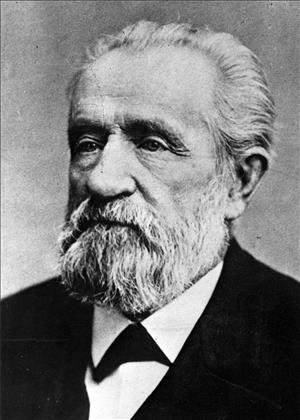On July 13, 1885, voters elect Republican Henry L. Yesler (1810-1892) to a second term as mayor of the City of Seattle. Yesler, a Seattle pioneer and one of its most prominent citizens, has played a key role in the settlement's economic survival by building a steam-powered saw mill on Elliott Bay in 1853. Yesler's mill was the young town's main industry (and for a while, its only industry), supplying lumber for local construction in addition to serving markets up and down the West Coast.
Gathering Place
A small cookhouse built for the benefit of Yesler's millworkers served as Seattle's community center for a number of years. It was replaced in 1865 by a larger building, called Yesler's Hall, which was used for local orations and dances and for traveling road shows, including minstrels, concerts, and theatricals.
Yesler was involved in many of the town's other civic improvements, including its first water system -- a series of V-shaped log flumes that carried water from springs on 3rd Avenue to his sawmill. He later extended the flumes to the end of his and neighboring docks, to supply fresh water to ships. Although successful in many of his early enterprises, Yesler made his fortune in real estate. He and his wife, Sarah, eventually built an opulent mansion. They donated space in the mansion for use as Seattle's first public library.
Yesler was elected to his first term as mayor in 1874. Under the city charter in effect at that time, mayors and councilmen served one-year terms, and elections were held on the second Monday in July.

